![[Updated] In 2024, Demystifying YouTube's SEO A Keyword Research Guide](https://thmb.techidaily.com/e9e9b7ca60047014bff6bb18f8c482a86a228fe45f3ba370acbb24c0cc43ac69.jpg)
"[Updated] In 2024, Demystifying YouTube's SEO A Keyword Research Guide"

Demystifying YouTube’s SEO: A Keyword Research Guide
Improve Your YouTube Video Performance with Wondershare Filmora
An easy and powerful video editor for YouTube Video
Numerous video and audio effects to choose from
Detailed tutorials provided by the official channel
With more than 1 billion hours of video watched every day, YouTube is the world’s second-largest search engine. That means you should optimize your videos for YouTube, so they rank well on Google and show up in YouTube searches.
YouTube keywords are the words you include in your video title, description, and anywhere that will help YouTube’s algorithm know what your video is about and what it entails. Keep reading to learn more about YouTube keyword research.
In this article
Why Do We Need to Research YouTube Keywords?
How to Research Keywords on YouTube?
Why Do We Need to Research YouTube Keywords?
Researching YouTube keywords is essential to your success. Here are three reasons why you might want to consider YouTube keyword research.
Helps You Know What Your Audience Is Searching for
Keyword research allows you to understand what people search for when they are on YouTube. In turn, this helps you know what your potential customers are seeking. You’ll then include these terms on your content to increase the chances of your audience finding you on YouTube.
It Helps You Rank Higher
You can use YouTube videos to promote brand awareness and market your product. Having high-ranking videos is a cost-effective way to push your target audience through the sales funnel.
When creating YouTube videos, you need to ensure you are reaching your target audience. And that is why researching keywords is crucial.
Once you have performed YouTube keyword research and determined the most suitable keywords for your topic, you can now use them to create target content for your audience. In turn, this will help you increase the number of subscribers on your YouTube channel. Your chances of your video showing up on YouTube will increase, which will bring traffic to your business.
It’s the Cheapest Way to Market Your Products or Services
Video marketing is expensive, and that is why you have to find every possible edge for your video marketing if you want to lower your costs and increase your ROI. For this reason, keyword research will ensure your audience finds you without spending loads of money that you could have used on services like Google Ads.
Because keyword research allows your target audience to find you, this means more opportunities for you. Most of the users will share entertaining videos.
How to Research Keywords on YouTube?
There are several ways of conducting keyword research for YouTube to find out what people are searching for and determine the content in your video. They include:
1. Using YouTube Search
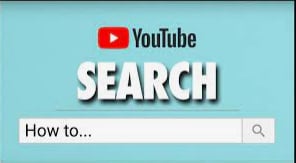
Although this method doesn’t provide all available search options, it’s still good for getting an idea of the type of keyword with which you’re dealing.
You can start your research by typing the keywords into YouTube’s search bar and reviewing the displayed results. It might be helpful to check out similar videos or video playlists. If your search seems too wide, you can enter several keywords at once (separated by commas), which will help you find better results.
2. Using Google’s Keyword Planner Tool

This tool is helpful for keyword difficulty and monthly searches volume assessment. If you only want to know the number of organic visits a given keyword gets, Google Keyword Planner might be helpful. The tool allows you to create lists consisting of related keywords and provides information about CPC (cost per click) and potential traffic in general.
3. Using YouTube Suggestions
What makes YouTube unique is its ability to suggest content based on your location, subscription, and watch history. You can use this method to find keyword ideas if you have subscribed to relevant channels. Also, you can rely on YouTube suggestions to find out whether a topic is popular or not.
4. Using YouTube Analytics
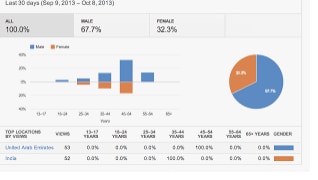
YouTube has a built-in Keyword Tool that is extremely helpful for researching the best keywords to use in your video titles, descriptions, and tags. This method allows you to see video search keywords with which users are finding your content. It is possible to review top organic keywords together with the respective engagement metrics, including bounce rate and average view duration.
5. Using Third-Party YouTube Keyword Tools
Last but not least, there are several third-party tools available on the market that provide both keyword difficulty and organic traffic estimation data for YouTube keywords. Some of these tools also offer similar features, including recommendations based on your existing subscriptions. Let’s look at some of the popular YouTube tools that you can use.
vidIQ
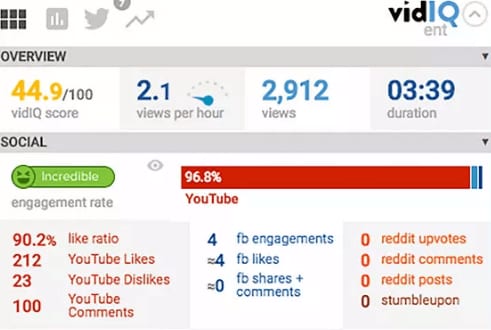
Designed to boost YouTube views, vidIQ is an effective SEO tool. The tool recommends keywords, descriptions, and titles that will help you to get more views and subscribers.
Performing vidIQ keyword research that relates to your video is a breeze. With just a few clicks, you will know what people are searching for and create content that they want to watch.
The tool allows you to enable inline keywords to know the tags your competitors use on search results. Use them to help you generate ideas relevant to your content. vidIQ also suggests ideal keywords like YouTube.
TubeBuddy
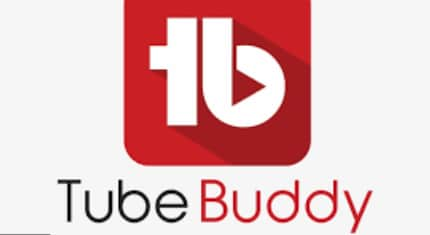
You can also use TubeBuddy to find and evaluate a range of YouTube keywords. You can do TubeBuddy keyword research on its mobile app or browser extension. The tool also shows how often people click on the results and how often users search a keyword.
Keyword Keg
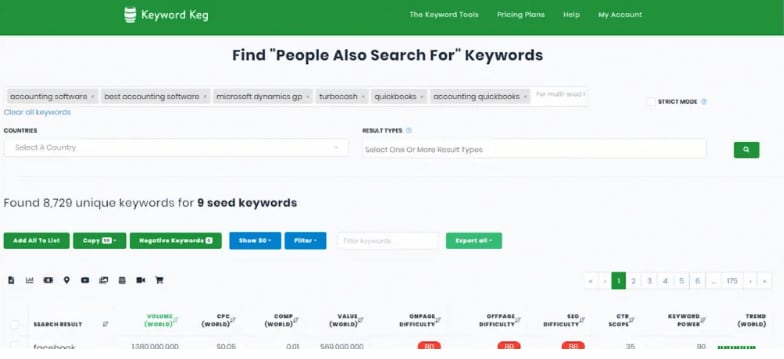
Using the YouTube suggest API, Keyword Keg shows you the terms users search most and the monthly number of searches. You’ll also see what other people are paying for CPC (cost per click). You can use this data to determine the best keywords for your YouTube videos.
Qusetion: Are keywords and Tags the Same Thing?
Answer: The main difference between tags and keywords is where you will place them. Keywords describe the content in your video to help search engines and YouTube’s algorithm find your video. Tags describe what the content in your video is about and how it’s connected.
Make Great YouTube Videos with Filmora
Having high-quality videos can make you stand out from your competitors. Filmora is a video editing software that allows you to create amazing YouTube videos. It has powerful editing tools that will enhance the quality of your videos.
You can also add over 800 cool effects and filters to your videos to make them fun to watch. With just a single click, you can add opacity and speed ramp effects as well as infinite zoom effects.
Additionally, you can adjust the dynamic range and white balance of Your YouTube videos. Furthermore, you can fine-tune the audio of your video to make it crisp and eliminate camera shake.
The best part is: Filmora is compatible with macOS X 10.12 or later and Windows 7, 8, and 10. It also supports all popular standard HD videos, audio, and image file formats.
Conclusion
Now that you know the importance of YouTube keyword research and how to perform keyword research, your target audience can find you easily.
With more than 1 billion hours of video watched every day, YouTube is the world’s second-largest search engine. That means you should optimize your videos for YouTube, so they rank well on Google and show up in YouTube searches.
YouTube keywords are the words you include in your video title, description, and anywhere that will help YouTube’s algorithm know what your video is about and what it entails. Keep reading to learn more about YouTube keyword research.
In this article
Why Do We Need to Research YouTube Keywords?
How to Research Keywords on YouTube?
Why Do We Need to Research YouTube Keywords?
Researching YouTube keywords is essential to your success. Here are three reasons why you might want to consider YouTube keyword research.
Helps You Know What Your Audience Is Searching for
Keyword research allows you to understand what people search for when they are on YouTube. In turn, this helps you know what your potential customers are seeking. You’ll then include these terms on your content to increase the chances of your audience finding you on YouTube.
It Helps You Rank Higher
You can use YouTube videos to promote brand awareness and market your product. Having high-ranking videos is a cost-effective way to push your target audience through the sales funnel.
When creating YouTube videos, you need to ensure you are reaching your target audience. And that is why researching keywords is crucial.
Once you have performed YouTube keyword research and determined the most suitable keywords for your topic, you can now use them to create target content for your audience. In turn, this will help you increase the number of subscribers on your YouTube channel. Your chances of your video showing up on YouTube will increase, which will bring traffic to your business.
It’s the Cheapest Way to Market Your Products or Services
Video marketing is expensive, and that is why you have to find every possible edge for your video marketing if you want to lower your costs and increase your ROI. For this reason, keyword research will ensure your audience finds you without spending loads of money that you could have used on services like Google Ads.
Because keyword research allows your target audience to find you, this means more opportunities for you. Most of the users will share entertaining videos.
 dotConnect for Oracle is an ADO.NET data provider for Oracle with Entity Framework Support.
dotConnect for Oracle is an ADO.NET data provider for Oracle with Entity Framework Support.
How to Research Keywords on YouTube?
There are several ways of conducting keyword research for YouTube to find out what people are searching for and determine the content in your video. They include:
1. Using YouTube Search

Although this method doesn’t provide all available search options, it’s still good for getting an idea of the type of keyword with which you’re dealing.
You can start your research by typing the keywords into YouTube’s search bar and reviewing the displayed results. It might be helpful to check out similar videos or video playlists. If your search seems too wide, you can enter several keywords at once (separated by commas), which will help you find better results.
2. Using Google’s Keyword Planner Tool

This tool is helpful for keyword difficulty and monthly searches volume assessment. If you only want to know the number of organic visits a given keyword gets, Google Keyword Planner might be helpful. The tool allows you to create lists consisting of related keywords and provides information about CPC (cost per click) and potential traffic in general.
3. Using YouTube Suggestions
What makes YouTube unique is its ability to suggest content based on your location, subscription, and watch history. You can use this method to find keyword ideas if you have subscribed to relevant channels. Also, you can rely on YouTube suggestions to find out whether a topic is popular or not.
4. Using YouTube Analytics

YouTube has a built-in Keyword Tool that is extremely helpful for researching the best keywords to use in your video titles, descriptions, and tags. This method allows you to see video search keywords with which users are finding your content. It is possible to review top organic keywords together with the respective engagement metrics, including bounce rate and average view duration.
5. Using Third-Party YouTube Keyword Tools
Last but not least, there are several third-party tools available on the market that provide both keyword difficulty and organic traffic estimation data for YouTube keywords. Some of these tools also offer similar features, including recommendations based on your existing subscriptions. Let’s look at some of the popular YouTube tools that you can use.
vidIQ

Designed to boost YouTube views, vidIQ is an effective SEO tool. The tool recommends keywords, descriptions, and titles that will help you to get more views and subscribers.
Performing vidIQ keyword research that relates to your video is a breeze. With just a few clicks, you will know what people are searching for and create content that they want to watch.
The tool allows you to enable inline keywords to know the tags your competitors use on search results. Use them to help you generate ideas relevant to your content. vidIQ also suggests ideal keywords like YouTube.
TubeBuddy

You can also use TubeBuddy to find and evaluate a range of YouTube keywords. You can do TubeBuddy keyword research on its mobile app or browser extension. The tool also shows how often people click on the results and how often users search a keyword.
Keyword Keg

Using the YouTube suggest API, Keyword Keg shows you the terms users search most and the monthly number of searches. You’ll also see what other people are paying for CPC (cost per click). You can use this data to determine the best keywords for your YouTube videos.
Qusetion: Are keywords and Tags the Same Thing?
Answer: The main difference between tags and keywords is where you will place them. Keywords describe the content in your video to help search engines and YouTube’s algorithm find your video. Tags describe what the content in your video is about and how it’s connected.
Make Great YouTube Videos with Filmora
Having high-quality videos can make you stand out from your competitors. Filmora is a video editing software that allows you to create amazing YouTube videos. It has powerful editing tools that will enhance the quality of your videos.
You can also add over 800 cool effects and filters to your videos to make them fun to watch. With just a single click, you can add opacity and speed ramp effects as well as infinite zoom effects.
Additionally, you can adjust the dynamic range and white balance of Your YouTube videos. Furthermore, you can fine-tune the audio of your video to make it crisp and eliminate camera shake.
The best part is: Filmora is compatible with macOS X 10.12 or later and Windows 7, 8, and 10. It also supports all popular standard HD videos, audio, and image file formats.
 FX PRO (Gold Robot + Silver Robot(Basic Package))
FX PRO (Gold Robot + Silver Robot(Basic Package))
Conclusion
Now that you know the importance of YouTube keyword research and how to perform keyword research, your target audience can find you easily.
With more than 1 billion hours of video watched every day, YouTube is the world’s second-largest search engine. That means you should optimize your videos for YouTube, so they rank well on Google and show up in YouTube searches.
YouTube keywords are the words you include in your video title, description, and anywhere that will help YouTube’s algorithm know what your video is about and what it entails. Keep reading to learn more about YouTube keyword research.
In this article
Why Do We Need to Research YouTube Keywords?
How to Research Keywords on YouTube?
Why Do We Need to Research YouTube Keywords?
Researching YouTube keywords is essential to your success. Here are three reasons why you might want to consider YouTube keyword research.
Helps You Know What Your Audience Is Searching for
Keyword research allows you to understand what people search for when they are on YouTube. In turn, this helps you know what your potential customers are seeking. You’ll then include these terms on your content to increase the chances of your audience finding you on YouTube.
It Helps You Rank Higher
You can use YouTube videos to promote brand awareness and market your product. Having high-ranking videos is a cost-effective way to push your target audience through the sales funnel.
When creating YouTube videos, you need to ensure you are reaching your target audience. And that is why researching keywords is crucial.
Once you have performed YouTube keyword research and determined the most suitable keywords for your topic, you can now use them to create target content for your audience. In turn, this will help you increase the number of subscribers on your YouTube channel. Your chances of your video showing up on YouTube will increase, which will bring traffic to your business.
It’s the Cheapest Way to Market Your Products or Services
Video marketing is expensive, and that is why you have to find every possible edge for your video marketing if you want to lower your costs and increase your ROI. For this reason, keyword research will ensure your audience finds you without spending loads of money that you could have used on services like Google Ads.
Because keyword research allows your target audience to find you, this means more opportunities for you. Most of the users will share entertaining videos.
How to Research Keywords on YouTube?
There are several ways of conducting keyword research for YouTube to find out what people are searching for and determine the content in your video. They include:
1. Using YouTube Search

Although this method doesn’t provide all available search options, it’s still good for getting an idea of the type of keyword with which you’re dealing.
You can start your research by typing the keywords into YouTube’s search bar and reviewing the displayed results. It might be helpful to check out similar videos or video playlists. If your search seems too wide, you can enter several keywords at once (separated by commas), which will help you find better results.
2. Using Google’s Keyword Planner Tool

This tool is helpful for keyword difficulty and monthly searches volume assessment. If you only want to know the number of organic visits a given keyword gets, Google Keyword Planner might be helpful. The tool allows you to create lists consisting of related keywords and provides information about CPC (cost per click) and potential traffic in general.
3. Using YouTube Suggestions
What makes YouTube unique is its ability to suggest content based on your location, subscription, and watch history. You can use this method to find keyword ideas if you have subscribed to relevant channels. Also, you can rely on YouTube suggestions to find out whether a topic is popular or not.
4. Using YouTube Analytics

YouTube has a built-in Keyword Tool that is extremely helpful for researching the best keywords to use in your video titles, descriptions, and tags. This method allows you to see video search keywords with which users are finding your content. It is possible to review top organic keywords together with the respective engagement metrics, including bounce rate and average view duration.
5. Using Third-Party YouTube Keyword Tools
Last but not least, there are several third-party tools available on the market that provide both keyword difficulty and organic traffic estimation data for YouTube keywords. Some of these tools also offer similar features, including recommendations based on your existing subscriptions. Let’s look at some of the popular YouTube tools that you can use.
vidIQ

Designed to boost YouTube views, vidIQ is an effective SEO tool. The tool recommends keywords, descriptions, and titles that will help you to get more views and subscribers.
Performing vidIQ keyword research that relates to your video is a breeze. With just a few clicks, you will know what people are searching for and create content that they want to watch.
The tool allows you to enable inline keywords to know the tags your competitors use on search results. Use them to help you generate ideas relevant to your content. vidIQ also suggests ideal keywords like YouTube.
TubeBuddy

You can also use TubeBuddy to find and evaluate a range of YouTube keywords. You can do TubeBuddy keyword research on its mobile app or browser extension. The tool also shows how often people click on the results and how often users search a keyword.
Keyword Keg

Using the YouTube suggest API, Keyword Keg shows you the terms users search most and the monthly number of searches. You’ll also see what other people are paying for CPC (cost per click). You can use this data to determine the best keywords for your YouTube videos.
Qusetion: Are keywords and Tags the Same Thing?
Answer: The main difference between tags and keywords is where you will place them. Keywords describe the content in your video to help search engines and YouTube’s algorithm find your video. Tags describe what the content in your video is about and how it’s connected.
Make Great YouTube Videos with Filmora
Having high-quality videos can make you stand out from your competitors. Filmora is a video editing software that allows you to create amazing YouTube videos. It has powerful editing tools that will enhance the quality of your videos.
You can also add over 800 cool effects and filters to your videos to make them fun to watch. With just a single click, you can add opacity and speed ramp effects as well as infinite zoom effects.
Additionally, you can adjust the dynamic range and white balance of Your YouTube videos. Furthermore, you can fine-tune the audio of your video to make it crisp and eliminate camera shake.
The best part is: Filmora is compatible with macOS X 10.12 or later and Windows 7, 8, and 10. It also supports all popular standard HD videos, audio, and image file formats.
Conclusion
Now that you know the importance of YouTube keyword research and how to perform keyword research, your target audience can find you easily.
With more than 1 billion hours of video watched every day, YouTube is the world’s second-largest search engine. That means you should optimize your videos for YouTube, so they rank well on Google and show up in YouTube searches.
YouTube keywords are the words you include in your video title, description, and anywhere that will help YouTube’s algorithm know what your video is about and what it entails. Keep reading to learn more about YouTube keyword research.
In this article
Why Do We Need to Research YouTube Keywords?
How to Research Keywords on YouTube?
Why Do We Need to Research YouTube Keywords?
Researching YouTube keywords is essential to your success. Here are three reasons why you might want to consider YouTube keyword research.
Helps You Know What Your Audience Is Searching for
Keyword research allows you to understand what people search for when they are on YouTube. In turn, this helps you know what your potential customers are seeking. You’ll then include these terms on your content to increase the chances of your audience finding you on YouTube.
It Helps You Rank Higher
You can use YouTube videos to promote brand awareness and market your product. Having high-ranking videos is a cost-effective way to push your target audience through the sales funnel.
When creating YouTube videos, you need to ensure you are reaching your target audience. And that is why researching keywords is crucial.
Once you have performed YouTube keyword research and determined the most suitable keywords for your topic, you can now use them to create target content for your audience. In turn, this will help you increase the number of subscribers on your YouTube channel. Your chances of your video showing up on YouTube will increase, which will bring traffic to your business.
It’s the Cheapest Way to Market Your Products or Services
Video marketing is expensive, and that is why you have to find every possible edge for your video marketing if you want to lower your costs and increase your ROI. For this reason, keyword research will ensure your audience finds you without spending loads of money that you could have used on services like Google Ads.
Because keyword research allows your target audience to find you, this means more opportunities for you. Most of the users will share entertaining videos.
 Software Update Pro - Check and update software installed on your computer.
Software Update Pro - Check and update software installed on your computer.
How to Research Keywords on YouTube?
There are several ways of conducting keyword research for YouTube to find out what people are searching for and determine the content in your video. They include:
1. Using YouTube Search

Although this method doesn’t provide all available search options, it’s still good for getting an idea of the type of keyword with which you’re dealing.
You can start your research by typing the keywords into YouTube’s search bar and reviewing the displayed results. It might be helpful to check out similar videos or video playlists. If your search seems too wide, you can enter several keywords at once (separated by commas), which will help you find better results.
2. Using Google’s Keyword Planner Tool

This tool is helpful for keyword difficulty and monthly searches volume assessment. If you only want to know the number of organic visits a given keyword gets, Google Keyword Planner might be helpful. The tool allows you to create lists consisting of related keywords and provides information about CPC (cost per click) and potential traffic in general.
3. Using YouTube Suggestions
What makes YouTube unique is its ability to suggest content based on your location, subscription, and watch history. You can use this method to find keyword ideas if you have subscribed to relevant channels. Also, you can rely on YouTube suggestions to find out whether a topic is popular or not.
4. Using YouTube Analytics

YouTube has a built-in Keyword Tool that is extremely helpful for researching the best keywords to use in your video titles, descriptions, and tags. This method allows you to see video search keywords with which users are finding your content. It is possible to review top organic keywords together with the respective engagement metrics, including bounce rate and average view duration.
5. Using Third-Party YouTube Keyword Tools
Last but not least, there are several third-party tools available on the market that provide both keyword difficulty and organic traffic estimation data for YouTube keywords. Some of these tools also offer similar features, including recommendations based on your existing subscriptions. Let’s look at some of the popular YouTube tools that you can use.
vidIQ

Designed to boost YouTube views, vidIQ is an effective SEO tool. The tool recommends keywords, descriptions, and titles that will help you to get more views and subscribers.
Performing vidIQ keyword research that relates to your video is a breeze. With just a few clicks, you will know what people are searching for and create content that they want to watch.
The tool allows you to enable inline keywords to know the tags your competitors use on search results. Use them to help you generate ideas relevant to your content. vidIQ also suggests ideal keywords like YouTube.
TubeBuddy

You can also use TubeBuddy to find and evaluate a range of YouTube keywords. You can do TubeBuddy keyword research on its mobile app or browser extension. The tool also shows how often people click on the results and how often users search a keyword.
Keyword Keg

Using the YouTube suggest API, Keyword Keg shows you the terms users search most and the monthly number of searches. You’ll also see what other people are paying for CPC (cost per click). You can use this data to determine the best keywords for your YouTube videos.
Qusetion: Are keywords and Tags the Same Thing?
Answer: The main difference between tags and keywords is where you will place them. Keywords describe the content in your video to help search engines and YouTube’s algorithm find your video. Tags describe what the content in your video is about and how it’s connected.
Make Great YouTube Videos with Filmora
Having high-quality videos can make you stand out from your competitors. Filmora is a video editing software that allows you to create amazing YouTube videos. It has powerful editing tools that will enhance the quality of your videos.
You can also add over 800 cool effects and filters to your videos to make them fun to watch. With just a single click, you can add opacity and speed ramp effects as well as infinite zoom effects.
Additionally, you can adjust the dynamic range and white balance of Your YouTube videos. Furthermore, you can fine-tune the audio of your video to make it crisp and eliminate camera shake.
The best part is: Filmora is compatible with macOS X 10.12 or later and Windows 7, 8, and 10. It also supports all popular standard HD videos, audio, and image file formats.
Conclusion
Now that you know the importance of YouTube keyword research and how to perform keyword research, your target audience can find you easily.
Building a Bountiful Beauty Channel Fortune
How to Make Money with a Beauty Channel?

Richard Bennett
Nov 01, 2022• Proven solutions
There are a lot of ways you can make money by posting makeup, beauty, or fashion videos on YouTube. These are all industries that understand the value of quality social media content.
In the video above, beauty YouTuber Gena M explains all the ways there are to make money posting makeup and fashion videos on YouTube. Gena’s most important piece of advice for other beauty vloggers is, to be honest. There is nothing wrong with making money from affiliates or sponsors, so long as you only associate with and recommend products you would actually buy.
Here’s more advice on how you can make money from your makeup videos:
Sponsorships
If you are truly passionate about makeup or fashion then you probably have a few favorite brands. Even if you have never really thought about a brand as your favorite, chances are you purchase one or two types of lip gloss – or any other product – over others on a regular basis.
Wouldn’t it be nice if a company whose product you already love and use in your videos would start paying you just to mention them?
There are sites called influencer marketing platforms – the most popular one is FameBit – where you can find brands that are looking for creators just like you to work with them on marketing campaigns. Brands post what they are looking for, and you send them proposals for what kinds of videos you want to make for them.
Sometimes, creating branded content can be as easy as drawing attention to the brand of the eyeliner you use in a few of your tutorials.
Other times, brands may want you to say specific things or include logos in your videos.
Make sure to incorporate any brand messages or product placement you agree to do in ways that will feel natural to your viewers. You should let them know that you have a sponsor, and then incorporate the branded content in ways that do not take away from their enjoyment of your videos.
Ad Revenue
Monetizing your videos and earning ad revenue is one of the primary ways beauty vloggers, and all other YouTubers, make money. It takes a long time to earn more than the pocket change from ads, but so long as you keep growing your audience your revenue will keep going up.
Pay attention to the estimated revenue reports to see which of your videos are earning the most money from ads (they won’t always be your most popular videos). By making more videos on similar topics you will be able to make more money.
Affiliate Links
By becoming an Amazon affiliate, or joining the affiliate program of another online store, you can make money by including links to products in the descriptions of your video or in your related blog posts.
For example, if you talk about your new curling iron in a hair tutorial then you can include a special link to it on Amazon. If any of your viewers follow that link and buy it, you earn a percentage of the purchase.
Even better – if that person keeps shopping, or even skips the curling iron and buys something else, you earn a percentage of any purchase they make on Amazon for a certain period of time.
Affiliate links are mostly used by bloggers, not YouTubers, but you can still include them in the descriptions of your videos (not YouTube Cards or annotations though). It is not a bad idea for you to create blog posts to accompany your videos and post your affiliate links. Blogs are a great way to generate traffic to your videos.
## GiftsSometimes companies might just give you stuff.
As your following gets bigger, brands might start sending you samples of their products in the hopes that you will fall in love with them and mention, review, or use them in your videos. This is not the same as a sponsorship because the brand is not paying you for a specific kind of message.
Receiving these kinds of gifts is not the same as getting paid, but it can certainly save you money on makeup.

Richard Bennett
Richard Bennett is a writer and a lover of all things video.
Follow @Richard Bennett
Richard Bennett
Nov 01, 2022• Proven solutions
There are a lot of ways you can make money by posting makeup, beauty, or fashion videos on YouTube. These are all industries that understand the value of quality social media content.
In the video above, beauty YouTuber Gena M explains all the ways there are to make money posting makeup and fashion videos on YouTube. Gena’s most important piece of advice for other beauty vloggers is, to be honest. There is nothing wrong with making money from affiliates or sponsors, so long as you only associate with and recommend products you would actually buy.
Here’s more advice on how you can make money from your makeup videos:
Sponsorships
If you are truly passionate about makeup or fashion then you probably have a few favorite brands. Even if you have never really thought about a brand as your favorite, chances are you purchase one or two types of lip gloss – or any other product – over others on a regular basis.
Wouldn’t it be nice if a company whose product you already love and use in your videos would start paying you just to mention them?
There are sites called influencer marketing platforms – the most popular one is FameBit – where you can find brands that are looking for creators just like you to work with them on marketing campaigns. Brands post what they are looking for, and you send them proposals for what kinds of videos you want to make for them.
Sometimes, creating branded content can be as easy as drawing attention to the brand of the eyeliner you use in a few of your tutorials.
Other times, brands may want you to say specific things or include logos in your videos.
Make sure to incorporate any brand messages or product placement you agree to do in ways that will feel natural to your viewers. You should let them know that you have a sponsor, and then incorporate the branded content in ways that do not take away from their enjoyment of your videos.
Ad Revenue
Monetizing your videos and earning ad revenue is one of the primary ways beauty vloggers, and all other YouTubers, make money. It takes a long time to earn more than the pocket change from ads, but so long as you keep growing your audience your revenue will keep going up.
Pay attention to the estimated revenue reports to see which of your videos are earning the most money from ads (they won’t always be your most popular videos). By making more videos on similar topics you will be able to make more money.
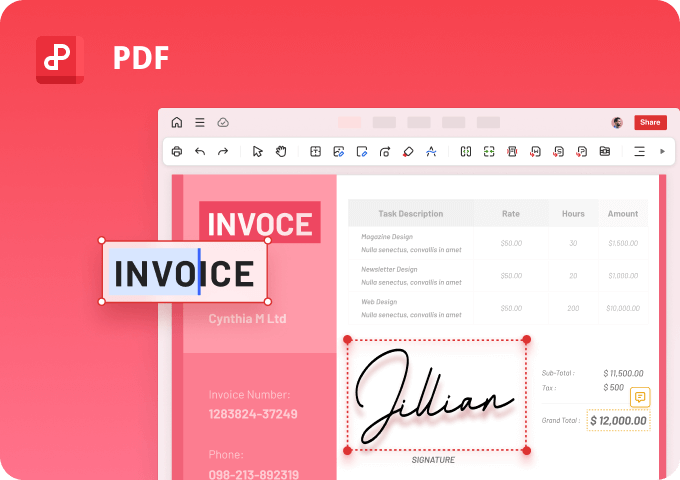
WPS Office Premium ( File Recovery, Photo Scanning, Convert PDF)–Yearly
Affiliate Links
By becoming an Amazon affiliate, or joining the affiliate program of another online store, you can make money by including links to products in the descriptions of your video or in your related blog posts.
For example, if you talk about your new curling iron in a hair tutorial then you can include a special link to it on Amazon. If any of your viewers follow that link and buy it, you earn a percentage of the purchase.
Even better – if that person keeps shopping, or even skips the curling iron and buys something else, you earn a percentage of any purchase they make on Amazon for a certain period of time.
Affiliate links are mostly used by bloggers, not YouTubers, but you can still include them in the descriptions of your videos (not YouTube Cards or annotations though). It is not a bad idea for you to create blog posts to accompany your videos and post your affiliate links. Blogs are a great way to generate traffic to your videos.
Gifts
Sometimes companies might just give you stuff.
As your following gets bigger, brands might start sending you samples of their products in the hopes that you will fall in love with them and mention, review, or use them in your videos. This is not the same as a sponsorship because the brand is not paying you for a specific kind of message.
Receiving these kinds of gifts is not the same as getting paid, but it can certainly save you money on makeup.

Richard Bennett
Richard Bennett is a writer and a lover of all things video.
Follow @Richard Bennett
Richard Bennett
Nov 01, 2022• Proven solutions
There are a lot of ways you can make money by posting makeup, beauty, or fashion videos on YouTube. These are all industries that understand the value of quality social media content.
In the video above, beauty YouTuber Gena M explains all the ways there are to make money posting makeup and fashion videos on YouTube. Gena’s most important piece of advice for other beauty vloggers is, to be honest. There is nothing wrong with making money from affiliates or sponsors, so long as you only associate with and recommend products you would actually buy.
Here’s more advice on how you can make money from your makeup videos:
Sponsorships
If you are truly passionate about makeup or fashion then you probably have a few favorite brands. Even if you have never really thought about a brand as your favorite, chances are you purchase one or two types of lip gloss – or any other product – over others on a regular basis.
Wouldn’t it be nice if a company whose product you already love and use in your videos would start paying you just to mention them?
There are sites called influencer marketing platforms – the most popular one is FameBit – where you can find brands that are looking for creators just like you to work with them on marketing campaigns. Brands post what they are looking for, and you send them proposals for what kinds of videos you want to make for them.
Sometimes, creating branded content can be as easy as drawing attention to the brand of the eyeliner you use in a few of your tutorials.
Other times, brands may want you to say specific things or include logos in your videos.
Make sure to incorporate any brand messages or product placement you agree to do in ways that will feel natural to your viewers. You should let them know that you have a sponsor, and then incorporate the branded content in ways that do not take away from their enjoyment of your videos.
Ad Revenue
Monetizing your videos and earning ad revenue is one of the primary ways beauty vloggers, and all other YouTubers, make money. It takes a long time to earn more than the pocket change from ads, but so long as you keep growing your audience your revenue will keep going up.
Pay attention to the estimated revenue reports to see which of your videos are earning the most money from ads (they won’t always be your most popular videos). By making more videos on similar topics you will be able to make more money.
Affiliate Links
By becoming an Amazon affiliate, or joining the affiliate program of another online store, you can make money by including links to products in the descriptions of your video or in your related blog posts.
For example, if you talk about your new curling iron in a hair tutorial then you can include a special link to it on Amazon. If any of your viewers follow that link and buy it, you earn a percentage of the purchase.
Even better – if that person keeps shopping, or even skips the curling iron and buys something else, you earn a percentage of any purchase they make on Amazon for a certain period of time.
Affiliate links are mostly used by bloggers, not YouTubers, but you can still include them in the descriptions of your videos (not YouTube Cards or annotations though). It is not a bad idea for you to create blog posts to accompany your videos and post your affiliate links. Blogs are a great way to generate traffic to your videos.
Gifts
Sometimes companies might just give you stuff.
As your following gets bigger, brands might start sending you samples of their products in the hopes that you will fall in love with them and mention, review, or use them in your videos. This is not the same as a sponsorship because the brand is not paying you for a specific kind of message.
Receiving these kinds of gifts is not the same as getting paid, but it can certainly save you money on makeup.

Richard Bennett
Richard Bennett is a writer and a lover of all things video.
Follow @Richard Bennett
Richard Bennett
Nov 01, 2022• Proven solutions
There are a lot of ways you can make money by posting makeup, beauty, or fashion videos on YouTube. These are all industries that understand the value of quality social media content.
In the video above, beauty YouTuber Gena M explains all the ways there are to make money posting makeup and fashion videos on YouTube. Gena’s most important piece of advice for other beauty vloggers is, to be honest. There is nothing wrong with making money from affiliates or sponsors, so long as you only associate with and recommend products you would actually buy.
Here’s more advice on how you can make money from your makeup videos:
Sponsorships
If you are truly passionate about makeup or fashion then you probably have a few favorite brands. Even if you have never really thought about a brand as your favorite, chances are you purchase one or two types of lip gloss – or any other product – over others on a regular basis.
Wouldn’t it be nice if a company whose product you already love and use in your videos would start paying you just to mention them?
There are sites called influencer marketing platforms – the most popular one is FameBit – where you can find brands that are looking for creators just like you to work with them on marketing campaigns. Brands post what they are looking for, and you send them proposals for what kinds of videos you want to make for them.
Sometimes, creating branded content can be as easy as drawing attention to the brand of the eyeliner you use in a few of your tutorials.
Other times, brands may want you to say specific things or include logos in your videos.
Make sure to incorporate any brand messages or product placement you agree to do in ways that will feel natural to your viewers. You should let them know that you have a sponsor, and then incorporate the branded content in ways that do not take away from their enjoyment of your videos.
Key features:
• Import from any devices and cams, including GoPro and drones. All formats supported. Сurrently the only free video editor that allows users to export in a new H265/HEVC codec, something essential for those working with 4K and HD.
• Everything for hassle-free basic editing: cut, crop and merge files, add titles and favorite music
• Visual effects, advanced color correction and trendy Instagram-like filters
• All multimedia processing done from one app: video editing capabilities reinforced by a video converter, a screen capture, a video capture, a disc burner and a YouTube uploader
• Non-linear editing: edit several files with simultaneously
• Easy export to social networks: special profiles for YouTube, Facebook, Vimeo, Twitter and Instagram
• High quality export – no conversion quality loss, double export speed even of HD files due to hardware acceleration
• Stabilization tool will turn shaky or jittery footage into a more stable video automatically.
• Essential toolset for professional video editing: blending modes, Mask tool, advanced multiple-color Chroma Key
Ad Revenue
Monetizing your videos and earning ad revenue is one of the primary ways beauty vloggers, and all other YouTubers, make money. It takes a long time to earn more than the pocket change from ads, but so long as you keep growing your audience your revenue will keep going up.
Pay attention to the estimated revenue reports to see which of your videos are earning the most money from ads (they won’t always be your most popular videos). By making more videos on similar topics you will be able to make more money.
Affiliate Links
By becoming an Amazon affiliate, or joining the affiliate program of another online store, you can make money by including links to products in the descriptions of your video or in your related blog posts.
For example, if you talk about your new curling iron in a hair tutorial then you can include a special link to it on Amazon. If any of your viewers follow that link and buy it, you earn a percentage of the purchase.
Even better – if that person keeps shopping, or even skips the curling iron and buys something else, you earn a percentage of any purchase they make on Amazon for a certain period of time.
Affiliate links are mostly used by bloggers, not YouTubers, but you can still include them in the descriptions of your videos (not YouTube Cards or annotations though). It is not a bad idea for you to create blog posts to accompany your videos and post your affiliate links. Blogs are a great way to generate traffic to your videos.
Gifts
Sometimes companies might just give you stuff.
As your following gets bigger, brands might start sending you samples of their products in the hopes that you will fall in love with them and mention, review, or use them in your videos. This is not the same as a sponsorship because the brand is not paying you for a specific kind of message.
Receiving these kinds of gifts is not the same as getting paid, but it can certainly save you money on makeup.

Richard Bennett
Richard Bennett is a writer and a lover of all things video.
Follow @Richard Bennett
- Title: [Updated] In 2024, Demystifying YouTube's SEO A Keyword Research Guide
- Author: Kenneth
- Created at : 2024-08-01 01:15:47
- Updated at : 2024-08-02 01:15:47
- Link: https://facebook-video-footage.techidaily.com/updated-in-2024-demystifying-youtubes-seo-a-keyword-research-guide/
- License: This work is licensed under CC BY-NC-SA 4.0.




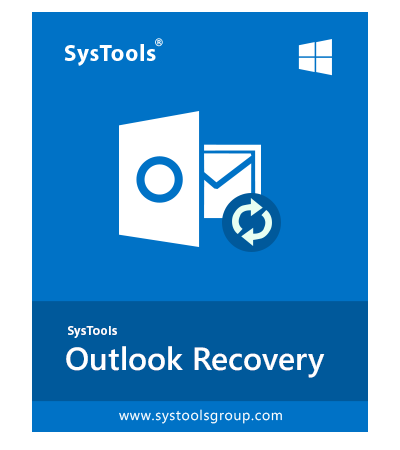

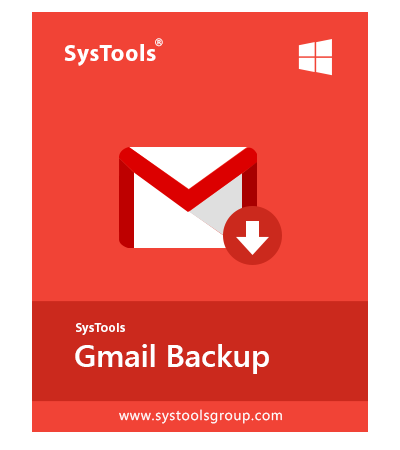


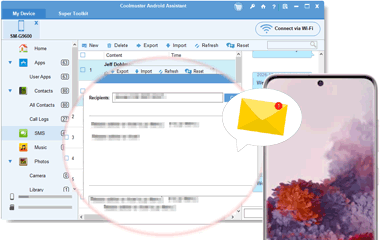
 Forex Robotron Basic Package
Forex Robotron Basic Package.png) Kanto Player Professional
Kanto Player Professional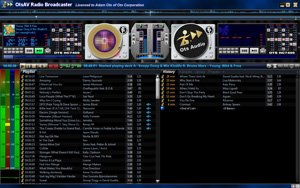 OtsAV Radio Webcaster
OtsAV Radio Webcaster